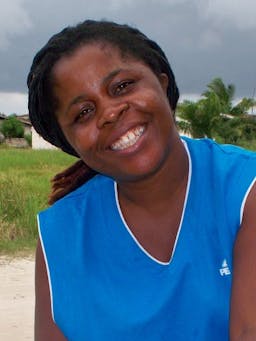WWW
Jan 21, 2015
Story
Internet access in Liberia is very expensive and unfriendly. More than that, these facilities are distance apart and very slow to work with. Unfriendly in a sense that most internet cafés have only one rest room to cater to both males and females, and they (rest room) are usually unsanitary and unsafe for females considering their physiology. Internet cafés are also poorly maintained in terms of their technical efficiency. If you have an important online duty to perform, you pay lots of money because it takes forever for one page to open, least to talk about uploading a document. This is widely believed to be an intentional business strategy for cafes’ owners to gain more profits. Knowing that the cafés are pay for by the minutes and the longer a customer stays the more money the business generates.
One may ask if it is possible to access the internet on a mobile phone. The answer is YES; it is indeed possible but, again it is more difficult especially when you are using a recharge card on your phone. Buying additional units to recharge your cell phone because you need more units on your phone is also an opportunity to access internet. In Liberia we use the pre-pay recharge card for mobile phones and that is the same units on the card that will definitely run out while accessing the internet on your mobile. In fact using the phone becomes more expensive.
Getting a modem to use on your laptop to facility research and online based work is equally tedious and stressful. The modem cost about 80.00 United States Dollars as a monthly bill to maintain and this is a lot of money by Liberia’s present social economic realities. In fact, the issue of electricity is another factor that further hinders the easy access of women to internet facilities both at work and at home. Since the civil conflict, Liberia is still struggling to restore electricity infrastructures which were badly damaged during 14 years of intermittent wars.
In an effort to empower female journalists and build the capacity and self-esteem of women working in the media, the Female Journalists Association in collaboration with her partner organized a three- phase professional training which includes computer and internet journalism training. The goal and intent of the initiative is to provide participants with the knowledge on internet blogging, sharpen their skills on professional internet broadcasting, identify and research issues of relevance and concern to create anti-violence campaign using the internet and cell phones.
15 female journalists were trained in the above skills but due to some challenges have not been able to implement what they were trained for.
This training was a result of a study conducted among female journalists in the country. According to the findings, the low technical capacity of women in the effective practice of modern journalistic skills contributes to the under-representation of female journalists especially at the community radio level.
Now let’s narrow our discussions on women in Liberia accessing the internet regularly and becoming part of this important communication campaign. As for us in Liberia, this is a critical challenge to have Liberian women to fully participate given the barriers that have been built by the systems in Liberia.
In September 2011, the government of Liberia benefitted from high speed internet connectivity through the Africa Coast to Europe (ACE) fiber optic submarine cable project which was expected to commence service by mid to late 2012. The project is expected to provide new business opportunities through high speed internet service and increased band-width to support developments in e-commerce and e-governance in the country. Hearing this brought relief and lots of smile on the faces of Liberian but up till now internet service is still expensive as it has been before this announcement and we still wondering what has happen.




